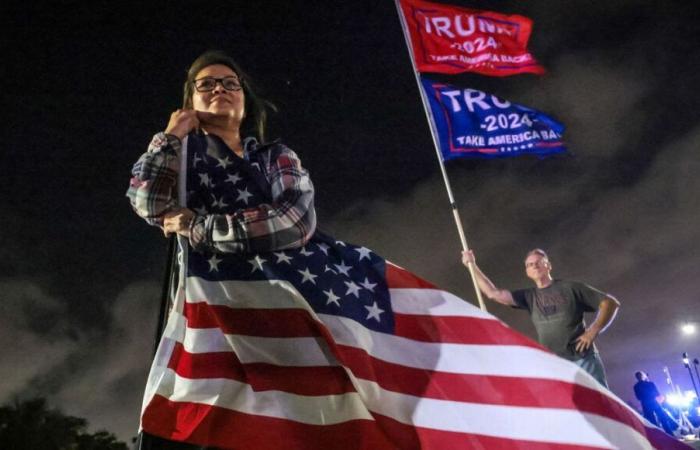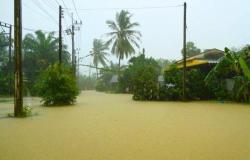We have to make a lot of effort not to be a caricature this morning and conclude that the probable victory of Donald Trump is also that of autocrats of all stripes. The former, and therefore probably future president of the United States, is certainly unpredictable; but his election changes the situation at a time of tensions and wars such as the world has not seen for a long time.
His return to the White House would symbolically mark the end of an era, and, at the risk of appearing excessive, the end of a world which was already taking on water from all sides: that of multilateralism born in 1945, at the end of the second world war; this world of which the American superpower was both the policeman and the godfather, for better and for worse.
For Europeans, it is the return of an image that remains engraved in memories: that of a famous G7 in Quebec in 2018. We see Donald Trump sitting with his arms crossed, a look of defiance; and in front of him, Angela Merkel, the German Chancellor, resting on her hands, body forward, surrounded by other Western leaders. This moment of confrontation, a decisive moment captured by a photographer, is the nightmare that haunts the supporters of liberal democracy, while Donald Trump makes a spectacular comeback.
Is this the same Donald Trump? The electoral campaign, marked by verbal violence and excesses, showed that Trump was still… Trump! He hasn't changed his personality. What has changed is the state of the world compared to 2016, the date of his first election.
We live today with two major wars, the Russian invasion of Ukraine and the Near and Middle East; and a Sino-American rivalry that has only grown since Donald Trump himself lit the fuse. In this context, the unpredictability of the future president is anything but reassuring.
If we want to understand what awaits us, we just need to see who our preferred interlocutors are. Within the European Union, it is Viktor Orban, the Hungarian Prime Minister, leader of the Eurosceptics and leader of the Vladimir Putin fan club on the continent; cited as an example by Donald Trump in his meetings, close to the far-right thinkers who shaped the Republican candidate's program.
The European Union therefore risks being the big loser in this American election, Nicolas. The EU as we know it, anyway. The way in which Donald Trump will manage the war in Ukraine, which he promised, remember, to resolve “in 24 hours”, will dictate the course of events. If he disconnects American aid to Ukraine, if he pushes Ukrainian President Volodymir Zelensky to negotiate from a position of weakness with Moscow, and all of Europe will be affected and weakened.
The American security guarantee within NATO is today at stake with a man who has already threatened it in the past; and the trade wars it stirs up will shake Europe.
In the Middle East too, a return of Donald Trump will not calm things down: Benjamin Netanyahu, the Israeli Prime Minister, who did not hide the fact that he was banking on the victory of the Republican candidate, is counting on him to give him a free hand in his vast military campaign, in Gaza, in Lebanon, and especially against Iran. We have therefore not finished evaluating the consequences of Donald Trump's return to world chaos.






